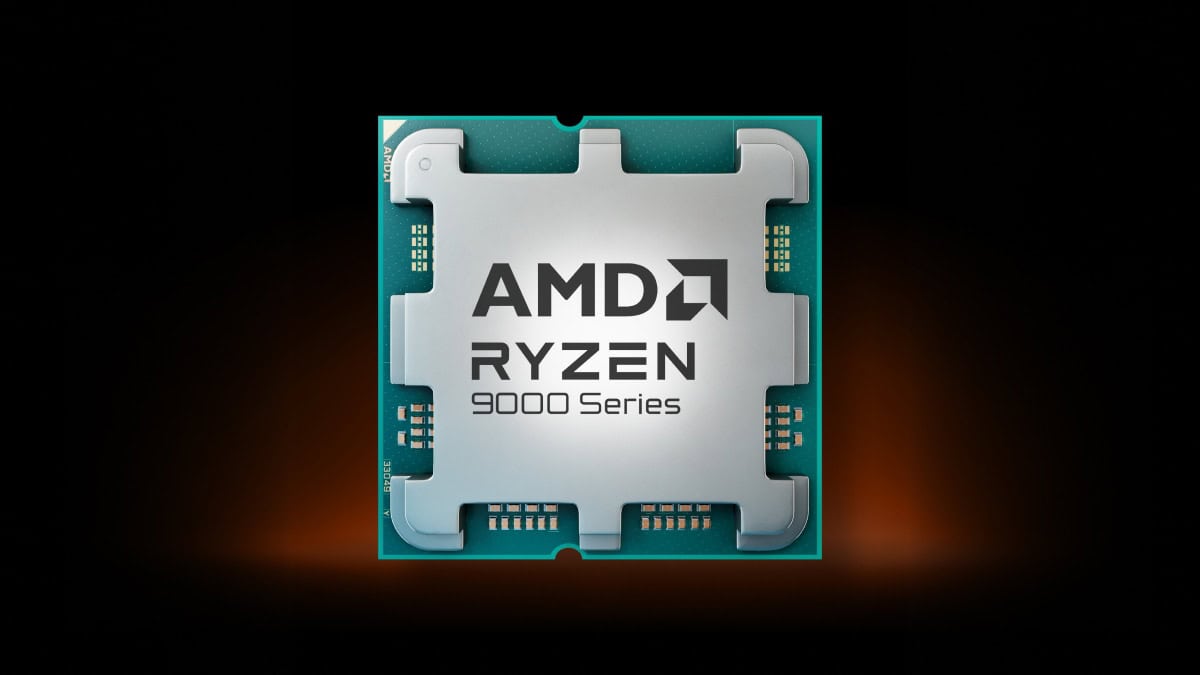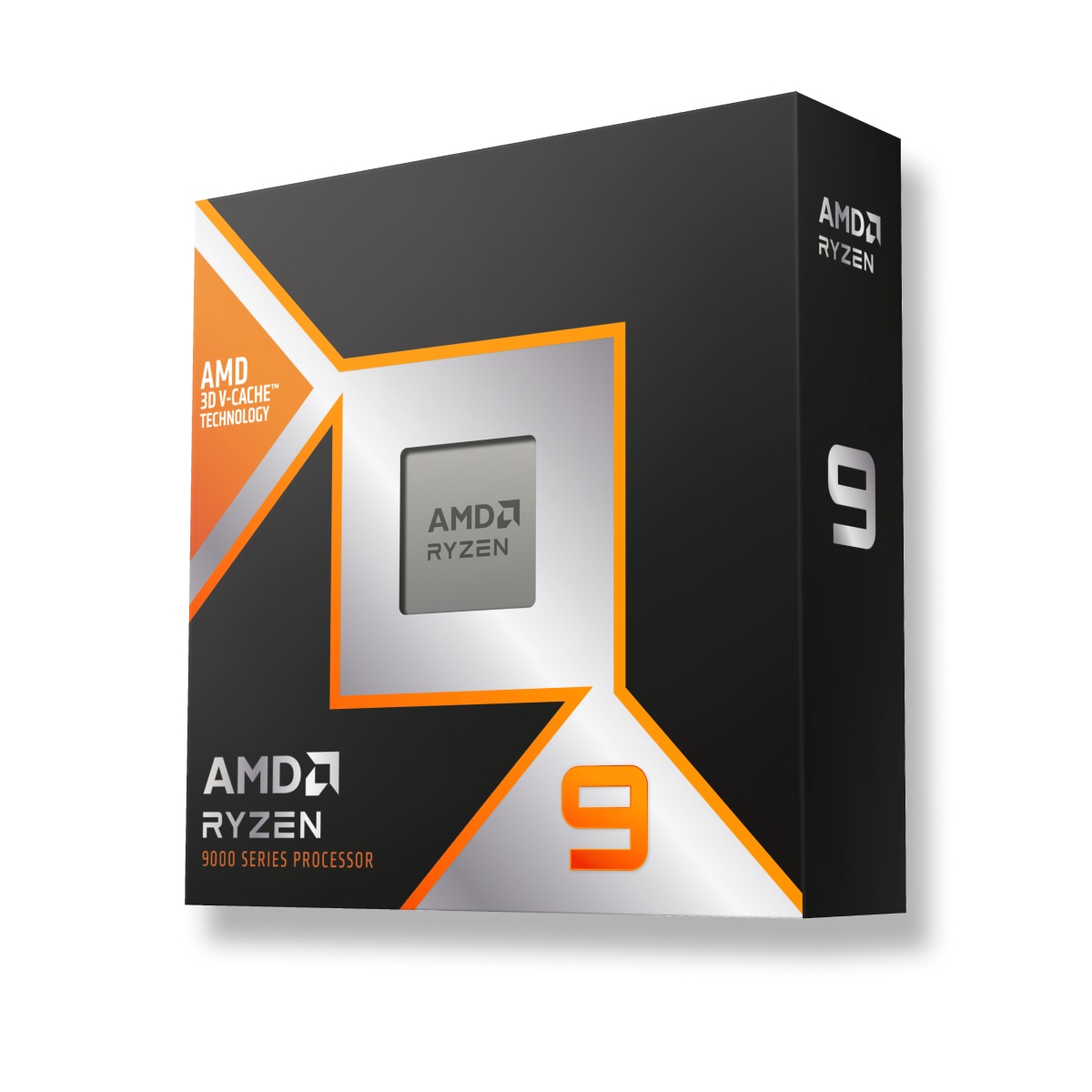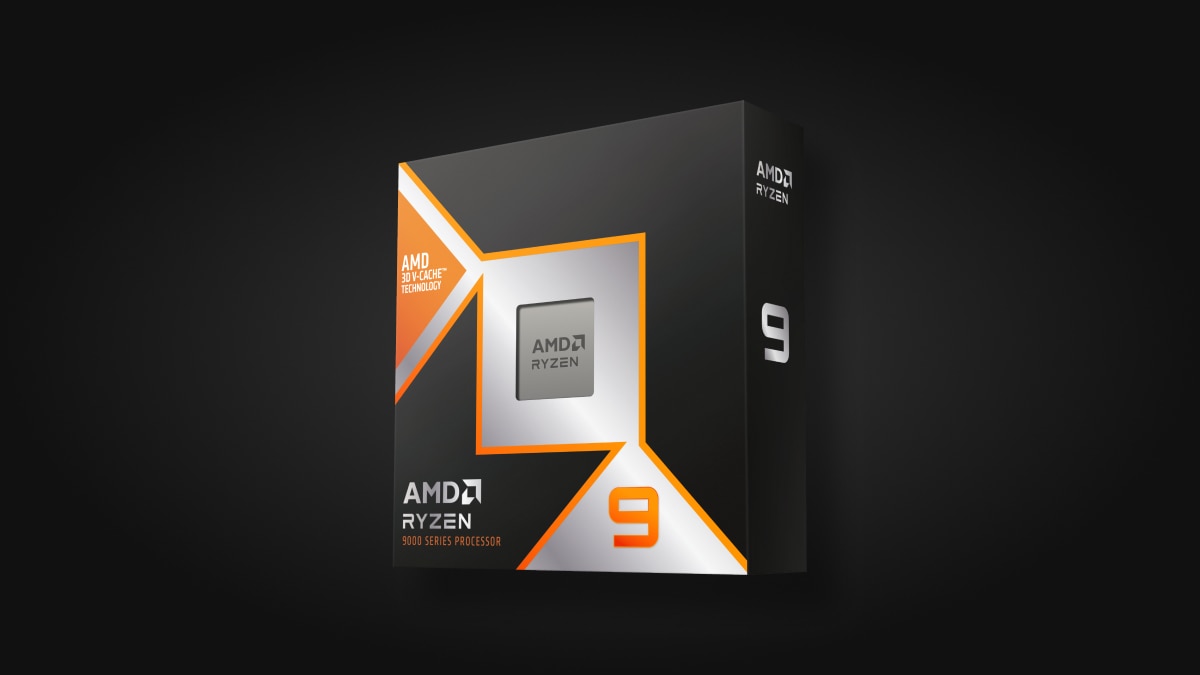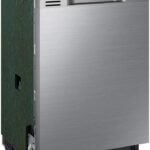AMD’s Ryzen 9000 series processors, powered by the cutting-edge Zen 5 architecture, mark a major leap forward for desktop CPUs. First unveiled at Computex 2024, the series officially debuted on August 15, 2024, after an initial delay from the original July 31 target. With significant IPC (Instructions Per Clock) improvements, better power efficiency, and enhanced gaming performance, Zen 5 delivers on its promise to push the limits of what AM5 desktops can do—while keeping compatibility intact.
Whether you’re building a high-end gaming rig or a productivity powerhouse, here’s an in-depth look at every Ryzen 9000 series processor, their launch dates, specs, and how they stack up in performance.
Zen 5 at a Glance: What’s New?
Zen 5 brings a 16-19% IPC improvement over Zen 4 in single-threaded tasks and significantly better power efficiency due to architectural refinements. It features:
- Wider front-end design for faster instruction fetch and execution.
- Improved branch prediction and data prefetching.
- Redesigned FP (Floating Point) and INT (Integer) pipelines, delivering higher throughput.
- Support for AVX-512 instructions, which dramatically accelerate workloads like AI inference and video encoding.
- AM5 socket compatibility, ensuring future-proofing at least through 2027.
Additionally, all Ryzen 9000 CPUs include integrated RDNA 2 Radeon graphics, making them ideal for users without a discrete GPU.

Complete Ryzen 9000 Series CPU Lineup
| Processor | Cores / Threads | Base Clock | Boost Clock | L3 Cache | TDP | 3D V-Cache | Launch Date |
|---|---|---|---|---|---|---|---|
| Ryzen 5 9600 | 6 / 12 | 3.8 GHz | 5.2 GHz | 32MB | 65W | No | August 15, 2024 |
| Ryzen 5 9600X | 6 / 12 | 3.9 GHz | 5.4 GHz | 32MB | 65W | No | August 15, 2024 |
| Ryzen 7 9700X | 8 / 16 | 3.8 GHz | 5.5 GHz | 32MB | 65W | No | August 15, 2024 |
| Ryzen 7 9800X3D | 8 / 16 | 4.7 GHz | 5.2 GHz | 96MB (L3) | 120W | Yes (3D V-Cache) | November 7, 2024 |
| Ryzen 9 9900X | 12 / 24 | 4.4 GHz | 5.6 GHz | 64MB | 120W | No | August 15, 2024 |
| Ryzen 9 9900X3D | 12 / 24 | 4.4 GHz | 5.5 GHz | 192MB (L3) | 120W | Yes (3D V-Cache) | March 12, 2025 |
| Ryzen 9 9950X | 16 / 32 | 4.3 GHz | 5.7 GHz | 64MB | 170W | No | August 15, 2024 |
| Ryzen 9 9950X3D | 16 / 32 | 4.3 GHz | 5.7 GHz | 192MB (L3) | 170W | Yes (3D V-Cache) | March 12, 2025 |
Performance Highlights
Ryzen 9 9950X – The AM5 Powerhouse
- Cinebench 2024 Multi-Core Score: ~45,000
- Gaming: Up to 15% faster than Intel’s Core i9-14900K in 1440p gaming.
- Workloads: Exceptional multi-threaded performance in rendering, video editing, and simulation.
The 9950X runs at a peak 5.7 GHz and dominates productivity workloads. However, its 170W TDP makes a robust cooling solution a necessity.
Ryzen 7 9800X3D – The Gaming Sweet Spot
- 1080p Gaming: Frequently tops the charts in CPU-limited scenarios.
- Efficiency: Outperforms its predecessor (5800X3D) by over 30% in CPU-bound games.
- Thermals: Runs warm due to its 3D V-Cache stack but stays efficient at 120W.
This chip is the most cost-effective option for gamers focused on raw frame rates.
Ryzen 5 9600X – Affordable Entry to Zen 5
- Best-in-class efficiency at 65W TDP, ideal for mainstream gamers.
- Matches or slightly beats Intel’s Core i5-13600K while consuming far less power.
- Integrated GPU is capable of basic tasks and light gaming.

Zen 5 vs Zen 4: Generational Gains
| Generation | IPC Improvement | Max Core Count | Efficiency | AI & AVX-512 Support |
|---|---|---|---|---|
| Zen 4 | Baseline | 16 Cores / 32 Threads | Less Efficient | Partial (AVX-512) |
| Zen 5 | +16-19% | 16 Cores / 32 Threads | More Efficient | Full AVX-512 + AI Boost |
Zen 5 isn’t just an iteration—it’s a redesign aimed at addressing bottlenecks and boosting efficiency. AI workloads, content creation, and high-refresh gaming all benefit from the smarter architecture.
AM5 Platform Longevity
AMD has committed to AM5 socket support through at least 2027, giving users peace of mind for future upgrades. BIOS updates for Zen 5 CPUs were widely available ahead of launch, and compatibility with existing AM5 motherboards makes it easier to adopt Zen 5 without reinvesting in an entirely new platform.
3D V-Cache: A Game Changer for Gamers
AMD’s 3D V-Cache technology, first introduced with the Ryzen 7 5800X3D, has returned bigger and better in Zen 5. The 9950X3D and 9900X3D offer up to 192MB of L3 cache, drastically improving gaming performance, particularly in CPU-bound scenarios.
In benchmarks, the Ryzen 9 9950X3D outperforms Intel’s Core Ultra 9 285K by up to 37% in 1080p gaming.
Final Word
The Ryzen 9000 series represents AMD’s most refined offering yet for desktop users. Whether you’re gaming, content creating, or looking for top-tier multi-threaded power, Zen 5 has something compelling to offer. The combination of performance, efficiency, and platform longevity makes these CPUs a standout choice in 2024 and beyond.
If you want to dig into specific benchmarks, thermal performance, or motherboard compatibility, let me know—happy to expand!
Key Takeaways
- The Ryzen 9000 series launched July 31, 2024, with the flagship 9950X arriving August 15 and X3D variants coming November 7.
- New Zen 5 architecture delivers significant performance improvements, with the 9700X performing 12% faster than the previous 5800X3D.
- AMD has reduced prices across the entire Ryzen 9000 lineup and maintained compatibility with existing AM5 motherboards through 2027.
Overview and Evolution of Ryzen Processors
AMD’s Ryzen processors have revolutionized the CPU market since their debut, offering competitive performance against Intel’s offerings. The lineup has evolved through multiple generations, each bringing significant improvements in architecture, performance, and efficiency.
Generations Leading to Ryzen 9000
The journey to Ryzen 9000 began with earlier generations that established AMD’s competitive position in the CPU market. Ryzen’s first generation introduced the Zen architecture, but it was Zen 3 that dramatically improved performance with its unified cache design and improved core layout.
Ryzen 7000 series, built on Zen 4 architecture, brought significant improvements with higher clock speeds and better power efficiency. These processors supported PCIe 5.0 and DDR5 memory, positioning AMD at the cutting edge of technology.
Each generation has steadily increased core counts, clock speeds, and IPC (Instructions Per Clock) performance. The transition from Zen 3 to Zen 4 delivered approximately 13% improvement in single-threaded performance, setting the stage for the more ambitious Zen 5 architecture.
Ryzen 9000 Series Innovation
Ryzen 9000 series, codenamed “Granite Ridge,” represents AMD’s latest achievement based on the Zen 5 microarchitecture. This new generation brings notable performance improvements over previous Ryzen processors while introducing more competitive pricing.
The flagship Ryzen 9 9950X features 16 cores and is priced at $649, which is $50 less than its predecessor, the Ryzen 9 7950X. This more aggressive pricing strategy aims to gain market share against Intel’s offerings.
Ryzen 9000 processors deliver significant performance improvements. For example, the Ryzen 7 9700X is reportedly 12% faster than the previous 5800X3D model. The new CPUs began launching on July 31, 2024, with some models like the Ryzen 9 9900X arriving on August 15, 2024.
AMD plans to expand the lineup with X3D models featuring increased cache memory in Q1 2025, targeting gamers and applications that benefit from larger cache sizes.
Technical Specifications and Architecture
The AMD Ryzen 9000 series brings significant improvements through its new Zen 5 architecture, enhanced cache structure, and optimized power efficiency. These CPUs maintain AMD’s focus on performance while introducing new technical advancements.
Zen 5 Architecture
The Ryzen 9000 series, launched on July 31, 2024, is built on AMD’s new Zen 5 architecture using TSMC’s 4nm manufacturing process. This represents a major leap from the previous Zen 4 design. The flagship Ryzen 9 9950X offers impressive specifications with its multi-core design.
Zen 5 delivers approximately 12% better single-thread performance compared to previous generations. This improvement comes from redesigned CPU cores with enhanced instruction handling capabilities. The architecture also includes upgraded branch prediction and wider execution units.
The lineup maintains compatibility with the AM5 socket, ensuring upgrade paths for existing users. Most models feature increased core counts compared to their Zen 4 counterparts.
Cache and Memory Improvements
Cache structure sees substantial upgrades in the 9000 series. The Ryzen 9 9950X features expanded L3 cache, which significantly improves data access times for memory-intensive applications and games.
3D V-Cache technology continues in select models, stacking additional cache vertically on the CPU die. This technology particularly benefits gaming performance by reducing memory latency.
Memory controller improvements provide better compatibility with high-speed DDR5 RAM. The chips support higher memory frequencies with more stable operation at XMP profiles.
L2 cache per core has also been increased, helping to keep more relevant data closer to the processing units. This reduces the need to access slower system memory during operations.
Energy Efficiency and TDP
Despite performance gains, AMD has maintained or improved power efficiency across the 9000 series. The baseline TDP for the Ryzen 9 9950X is similar to its predecessor, though actual power consumption varies based on workload.
The processors feature enhanced power management algorithms that better balance performance and energy usage. This includes more granular clock gating and improved boost behavior that targets power where needed.
AMD claims up to 15% better performance-per-watt compared to the 7000 series. This efficiency is particularly important for system builders concerned with thermal management and energy consumption.
Standard models operate within a 65W to 170W TDP range, with precision boost allowing temporary consumption above these values during intensive workloads.
Comparison with Competing Processors
The Ryzen 9000 Series processors face direct competition from Intel’s lineup, particularly the Core Ultra 200S Series (Arrow Lake). These competing processors differ significantly in architecture, performance capabilities, and value proposition.
AMD vs Intel
AMD’s Ryzen 9000 Series processors, launched in July 2024, bring significant improvements over previous generations with their new Zen 5 architecture. The flagship Ryzen 9 9950X offers 16 cores and delivers approximately 16% better IPC (Instructions Per Clock) performance compared to previous generations.
Intel’s competing Core Ultra 200S Series (Arrow Lake) processors present strong alternatives in the high-performance desktop market. The Intel Core i9-14900K remains Intel’s current flagship while the market awaits the Arrow Lake launch.
In performance benchmarks, the Ryzen 9 9700X demonstrates approximately 12% better performance than AMD’s previous 5800X3D model. This improvement highlights AMD’s continuing evolution in gaming performance.
The price-to-performance ratio varies between the two manufacturers. AMD typically offers more cores at similar price points, while Intel often provides stronger single-core performance for gaming applications.
Heat management and power efficiency also differ between the competitors, with AMD generally demonstrating better efficiency in multi-threaded workloads.
Impact on Gaming and Productivity
The Ryzen 9000 series processors bring significant improvements to both gaming and productivity workloads. With the Zen 5 architecture’s 16% IPC improvement, users can expect substantial performance gains across various applications.
Gaming Performance
The Ryzen 9000 series offers impressive gaming capabilities that will appeal to enthusiasts and competitive gamers alike. According to search results, the Ryzen 7 9700X delivers approximately 12% better performance than the popular 5800X3D model, which was already known for its gaming prowess.
AMD is further strengthening its gaming lineup with new X3D models expected in Q1 2025. These specialized gaming chips typically feature AMD’s 3D V-Cache technology, which significantly improves gaming performance by reducing memory latency.
The new processors take full advantage of PCIe 5.0 and DDR5 memory, allowing for faster data transfer rates and reduced loading times in modern games. This combination of technologies makes the 9000 series particularly well-suited for high-refresh-rate gaming at 1440p and 4K resolutions.
Productivity and Professional Use
For productivity and professional applications, the Ryzen 9000 series delivers substantial improvements. The increased core counts and enhanced IPC translate to faster rendering times, smoother multitasking, and improved performance in CPU-intensive tasks.
Content creators will benefit from quicker video encoding and 3D rendering capabilities. The processors’ support for USB 4.0 enables faster external storage access and improved peripheral connectivity for professional setups.
The Zen 5 architecture also brings improved AI acceleration, which benefits applications that leverage machine learning for tasks like photo editing, video analysis, and data processing. This makes the 9000 series particularly valuable for professionals who work with AI-enhanced software.
For workstation users, the combination of PCIe 5.0 support and enhanced core performance allows for better utilization of professional GPUs and high-speed storage solutions, creating a more responsive working environment for demanding applications.
Frequently Asked Questions
AMD’s Ryzen 9000 series launch has been rescheduled from its original July date to August 2024. The release will be staggered with different models becoming available on different dates.
When will the AMD Ryzen 9 9900X be available for purchase?
The AMD Ryzen 9 9900X is scheduled to launch on August 15, 2024. This is part of AMD’s staggered release approach for the Ryzen 9000 series.
AMD originally planned to release all Ryzen 9000 processors on July 31st but delayed the launch. The company decided to split the release dates for different models.
What is the expected release timeframe for the Ryzen 9000 X3D CPUs?
AMD has not officially announced specific release dates for the Ryzen 9000 X3D CPUs yet. These enhanced versions with AMD’s 3D V-Cache technology typically launch several months after the standard models.
Based on previous release patterns, we might expect the X3D variants to arrive in late 2024 or early 2025. AMD usually positions these gaming-focused chips after the initial lineup has established itself in the market.
How does the Ryzen 9000 series compare to the Ryzen 7000 series in terms of performance?
The Ryzen 9000 series is expected to offer significant performance improvements over the 7000 series. According to available information, the Ryzen 7 9700X is approximately 12% faster than the 5800X3D.
The new chips use AMD’s Zen 5 architecture, which brings IPC (Instructions Per Clock) improvements. These advancements should translate to better performance in both productivity and gaming applications compared to the Zen 4-based Ryzen 7000 series.
Are there any announced dates for the Ryzen 9 9950X3D launch?
AMD has not yet officially announced a specific launch date for the Ryzen 9 9950X3D. This high-end X3D model will likely follow the standard 9950X release by several months.
The company typically introduces X3D variants after the initial processor lineup has been established in the market. More information about the 9950X3D release schedule may become available after the standard 9000 series launch.
What improvements can we anticipate with the introduction of the Ryzen 9000 series?
The Ryzen 9000 series brings AMD’s new Zen 5 architecture, which offers improved efficiency and performance. Users can expect better IPC performance, enhanced power efficiency, and potentially higher clock speeds.
These processors will likely provide better gaming performance and improved multi-threaded capabilities for productivity tasks. The series may also offer enhanced AI acceleration features to keep pace with current computing trends.
Will there be a significant performance difference between the Ryzen 8000 and Ryzen 9000 series?
Yes, there should be a notable performance difference between the Ryzen 8000 and 9000 series. According to search results, the Ryzen 8000 series is actually slower than the 7000 series in gaming scenarios.
The Ryzen 9000 series, based on the new Zen 5 architecture, is expected to deliver substantial performance improvements over both the 7000 and 8000 series. This makes the 9000 series a more compelling upgrade for users seeking better gaming and productivity performance.







